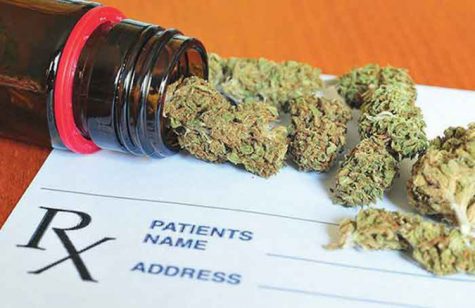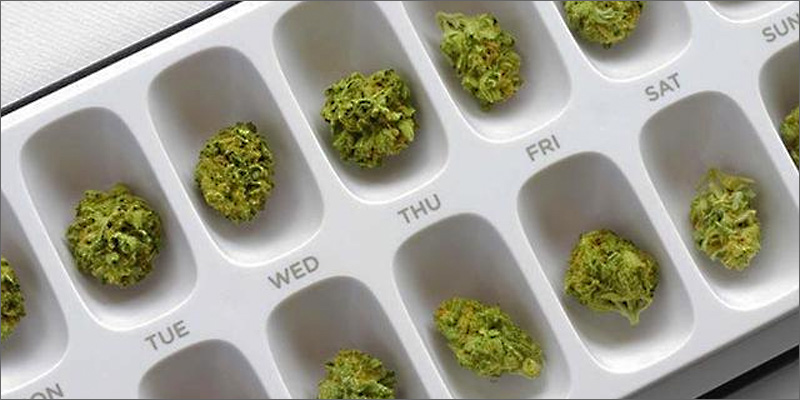Cannabis legalization in Canada might dismantle the medical cannabis system
The number of medical cannabis authorizations and prescriptions seem to have dropped in cannabis-friendly jurisdictions
Cannabis legalization in Canada will be enacted on October 17, 2018.
When this eagerly anticipated day comes, doctors in the North American country hope that Canada’s medical cannabis system will eventually be discontinued. This is according to Canadian Medical Association vice-president, Dr. Jeff Blackmer.
“The medical profession, as a whole, has really struggled with the whole concept of medical cannabis. There’s definitely some physicians who feel comfortable in that area but most don’t,” Dr. Blackmer told CBC Calgary News at 6. “And [that is] primarily because of the lack of evidence, the lack of scientific studies showing it actually works, the lack of knowledge around dosing and interactions with other medications — all these types of things. Our recommendation was that once it is legalized, that there really is no reason for a separate medical system.”
Legal weed in Canada will be available this fall
Canada’s federal government have set the date for cannabis legalization: October 17, 2018.
Once the plant is fully legalized, Blackmer believes that patients will no longer need to request cannabis from their healthcare practitioners and doctors. A shortage of clinical studies means that currently, the majority of Canadian healthcare plans are reluctant to cover medical cannabis costs.
Blackmer affirms the importance of education in the run-up to Canada’s cannabis legalization date.
“We really want people, when they’re deciding whether or not to use cannabis once is becomes legalized, to make an informed decision. To understand there are risks associated with that, that there are potential health consequences,” he said. “If anyone can go down to the local dispensary and get cannabis, there’s really no need for a separate medical authorization system. You really don’t need to have people going to their doctors because anyone who has a medical condition and thinks they might benefit from it can go ahead and try it.”
Blackmer is concerned about teen cannabis consumption
 Youth cannabis consumption is a problem that plagues the mind of many concerned parents. Blackmer is also concerned about the impact that legal weed in Canada may have on the younger population.
Youth cannabis consumption is a problem that plagues the mind of many concerned parents. Blackmer is also concerned about the impact that legal weed in Canada may have on the younger population.
Provinces like Alberta are preparing for cannabis legalization by setting minimum age requirements. In Alberta, the minimum age for cannabis consumption is 19.
“We know that more young people use this substance than older people. We know it is something teenagers often try in high school and we know that it has a detrimental impact,” Blackmer said.
Medical authorizations have reduced in weed-friendly jurisdictions
 Interestingly, researchers have discovered a reduction in the number of medical authorizations and prescriptions in cannabis-friendly jurisdictions throughout the U.S. Blackmer anticipates this trend will sweep across Canada, too. As Canada becomes more experienced with complete cannabis legalization, demand for medical cannabis authorizations is sure to drop.
Interestingly, researchers have discovered a reduction in the number of medical authorizations and prescriptions in cannabis-friendly jurisdictions throughout the U.S. Blackmer anticipates this trend will sweep across Canada, too. As Canada becomes more experienced with complete cannabis legalization, demand for medical cannabis authorizations is sure to drop.
“There will be some physicians who feel that this has a real place in terms of treatment options and will continue to have those conversations with patients. But we’re hoping for the vast majority of physicians who are uncomfortable, it will mean their patients can just seek it out on their own, they won’t have to find another doctor or to go to a cannabis clinic,” Blackmer said.
After all, if a patient can walk into a dispensary and procure their pot without having to step foot inside a doctor’s office, why wouldn’t they? Unless more Canadian insurers start covering the costs of cannabis-based treatments, the easier option for Canadians would be to consult with a budtender inside a recreational cannabis dispensary.









